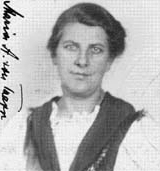A Quote by Anthony Burgess
In two thousand years all our generals and politicians may be forgotten, but Einstein and Madame Curie and Bernard Shaw and Stravinsky will keep the memory of our age alive.
Related Quotes
While browsing in a second-hand bookshop one day, George Bernard Shaw was amused to find a copy of one of his own works which he himself had inscribed for a friend: "To ----, with esteem, George Bernard Shaw." He immediately purchased the book and returned it to the friend with a second inscription: "With renewed esteem, George Bernard Shaw.
You should keep in mind no names, nor numbers, nor isolated incidents, not even results, but only methods..The method produces numerous results; a few of these will remain in our memory, and as long as they remain few, they are useful to illustrate and to keep alive the rules which order a thousand results.
Memory is corrupted and ruined by a crowd of memories. If I am going to have a true memory, there are a thousand things that must first be forgotten. Memory is not fully itself when it reaches only into the past. A memory that is not alive to the present does not remember the here and now, does not remember its true identity, is not memory at all. He who remembers nothing but facts and past events, and is never brought back into the present, is a victim of amnesia.
Yet the experience of four thousand years should enlarge our hopes, and diminish our apprehensions: we cannot determine to what height the human species may aspire in their advances towards perfection; but it may safely be presumed, that no people, unless the face of nature is changed, will relapse into their original barbarism.
When women hear those words, an old, old memory is stirred and brought back to life. The memory is of our absolute, undeniable, and irrevocable kinship with the wild feminine, a relationship which may have become ghostly from neglect, buried by over-domestication, outlawed by the surrounding culture, or no longer understood anymore. We may have forgotten her names, we may not answer when she calls ours, but in our bones we know her, we yearn toward her, we know she belongs to us and we to her.
We must teach our people the greatness of China's historical culture. In our educational program we must stress Chinese history and geography so that all may know and appreciate China's civilization of five thousand years and the far-flung boundaries of our ancient race. This will engender a greater faith in our own future.
Twenty or thirty years ago, in the army, we had a lot of obscure adventures, and years later we tell them at parties, and suddenly we realize that those two very difficult years of our lives have become lumped together into a few episodes that have lodged in our memory in a standardized form, and are always told in a standardized way, in the same words. But in fact that lump of memories has nothing whatsoever to do with our experience of those two years in the army and what it has made of us.
Our age has become so mechanical that this has also affected our recreation. People have gotten used to sitting down and watching a movie, a ball game, a television set. It may be good once in a while, but it certainly is not good all the time. Our own faculties, our imagination, our memory, the ability to do things with our mind and our hands-they need to be exercised. If we become too passive, we get dissatisfied.





































